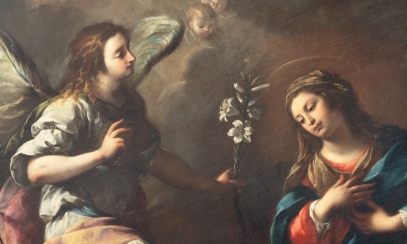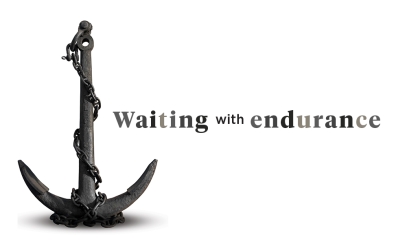My Lord and My God
Showing reverence to the Body and Blood of Christ
Showing reverence to the Body and Blood of Christ
What is the first thing we do after the priest consecrates the bread and wine such that they become the body and blood of the Lord? We worship!
What is the first thing we do after the priest consecrates the bread and wine such that they become the body and blood of the Lord? We worship!
The priest has just said, “Take and eat,” and “Take and drink.” At the Last Supper that is what the apostles did. They ate and drank the body and blood of the Lord. Yet, that is not what we do. Rather, after the words are spoken over the bread and the wine, the priest lifts up the host and the cup for worship. I was taught as a kid, and to this day I continue, to say quietly, “My Lord and My God,” in imitation of St. Thomas.
Eight days after the resurrection of Jesus from the dead, Jesus appeared a second time to the apostles in the Upper Room. This time Thomas was present. He did not take the word of his brothers that Jesus had risen and had appeared to them. When Jesus this time invites Thomas to touch the wounds in his hands and side, Thomas expresses his belief that it really is the Lord and says, “My Lord and My God.” (Jn 20:24-29)
Worshiping our Lord in the Eucharist has become an important part of the life of a Catholic. The Catechism (#1380) instructs us:
In his Eucharistic presence he remains mysteriously in our midst as the one who loved us and gave himself up for us, and he remains under signs that express and communicate that love:
The Church and the world have a great need for Eucharistic worship. Jesus awaits us in this sacrament of love. Let us not refuse the time to go to meet him in adoration, in contemplation full of faith, and open to making amends for the serious offenses and crimes of the world. Let our adoration never cease. (John Paul II, Dominicae cenae, 3)
This is why we genuflect or bow before his holy presence. This is why we try to spend an hour in prayer before the Blessed Sacrament every now and then. This is why we participate in eucharistic processions, especially those held on the Feast of Corpus Christi, the Body of Christ.
Any of these acts of worship are a reminder to us that Jesus is not present because we have done something. His presence does not rely on our willing it to be so. Even if we ignore him, he is still present. Jesus is present because he wills it to be so. He has chosen to give us this gift of his presence. It is all grace.
Finally, this is a reminder that Jesus invites us into communion with him. He has called us friends and he desires to be a friend with us. He wants us to speak with him, to be with him even as he has chosen to be with us. Even though the host and the cup are held up for our worship for a mere few seconds, his calling us to a deeper relationship with him will need from us more time in devoted worship outside of Mass. That too is all grace.
Bishop Earl Boyea is the fifth bishop of the Catholic Diocese of Lansing.



